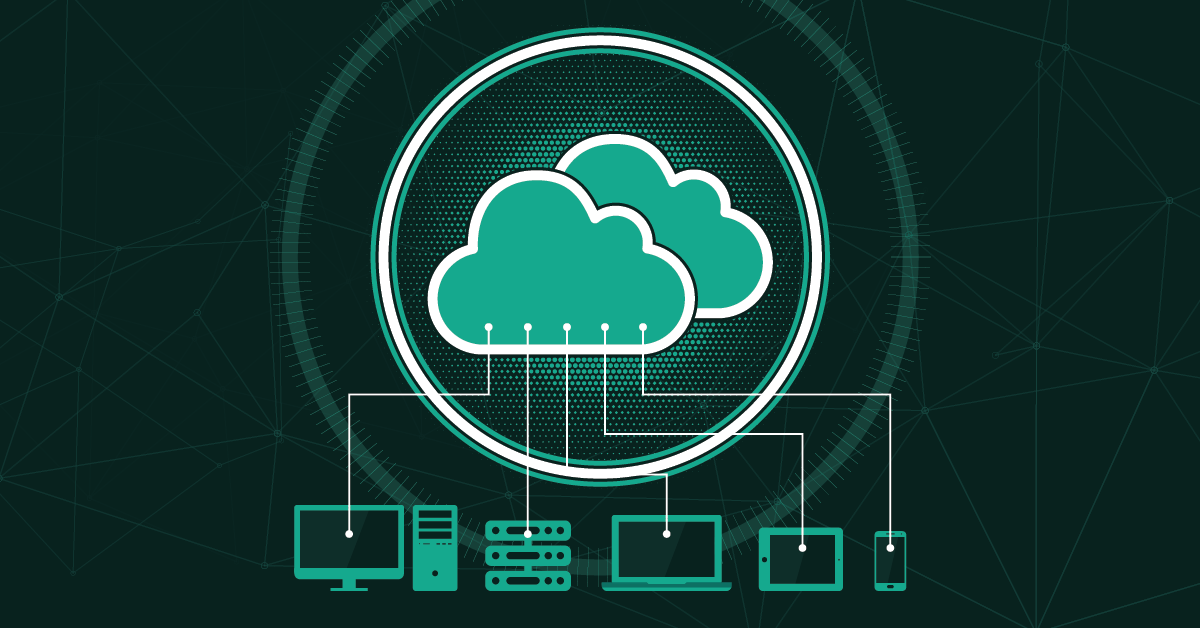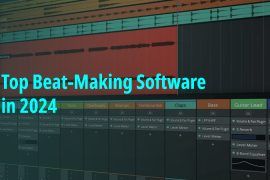Everything is moving into the cloud, including software, infrastructure applications, products, services, or operating systems.
In the process, vast sums of money have been put into cloud migration since the growth of cloud computing in the last few years as businesses are increasingly converting to different cloud computing services.
Cloud computing is a type of computing based on the web that permits individuals and businesses to use computing resources like databases, virtual machines processing, memory services storage, messaging events, and pay-as-you-go. Cloud computing is often better than older models. In contrast to traditional computing, you don’t need to pay any fees if you don’t utilize any of the resources. Like a water line or an electricity line, you are provided with a meter that tracks your monthly usage. Then, you pay for that usage at the rate you choose.
That’s why we’ve made the top 5 Virtual Private Cloud (VPC) Providers on the market in 2022.
Let’s get started.
Table of Contents
What is a Virtual Private Cloud (VPC)?

Virtual Private Cloud (VPC) is a private and secure source of resources available to groups of organizations hosted on a cloud infrastructure.
Virtual Private Cloud (VPC) customers can run software or store data, host websites, and perform any other task they would do in a standard private cloud; however, the private cloud is managed remotely by a public cloud service provider.
VPCs blend the flexibility and scalability of cloud computing on a public basis with the privacy and security of private cloud computing. This allows an organization or an enterprise to access all the resources, and also benefit from the benefits of utilizing public cloud computing while also ensuring data privacy by using the use of private cloud computing.
One method to visualize this multi-tenancy cloud is to compare it with an apartment within an apartment block. Because of the VPC, it can be utilized in various sizes of organizational structures. Smaller companies can benefit from it. It can be beneficial in situations where there is a remote workforce. On the other hand, larger companies can make use of VPCs to connect with different VPCs to link with other VPCs for collaboration across functional lines.
To be eligible to be included within the Virtual Private Cloud (VPC) category, the product must:
- Abstract the cloud private using private Internet addresses (IP addresses), subnets as well as virtual networks.
- Configure cloud resources for public use to separate the private network.
- Give administrators Remote access to computer resources.
That’s why we’ve made the top 5 Virtual Private Cloud (VPC) Providers on the market in 2022.
Let’s have a look.
Top 5 Virtual Private Cloud (VPC) Providers in 2022.
Here’s a list of the top 5 Virtual Private Cloud (VPC) providers on the market in 2022. We’ll also list their top features, the most utilized features, and the full description of each one below.
Amazon Virtual Private Cloud (Amazon VPC)
Our list begins with Amazon Virtual Private Cloud (Amazon VPC). Amazon VPC lets users provision an isolated, logically-logical portion within the AWS Cloud that allows them to start AWS resources in the form of a virtual network.
Users control the virtual network environment by selecting the Subnet-specific IP addresses, creating them, and setting up routes, tables, and network gateways. It utilizes IPv4 and IPv6 within the VPC to secure quick access to the resources and applications.
It also provides total control over their virtual network. Users can set up an open-source network for internet-connected websites while putting their back-end systems in private subnets with no internet connection, such as databases or application servers.
- Deployment – Cloud, SaaS, Web-Based.
- Top Features – Analytics, Database Management, Logging, Custom VMs, Console Configuration, Operating Systems, Network Management, Virtual Machines, Security, Maintenance, Scalability, Cloud Migration, Storage Management, IPv4 and IPv6 address blocks, Subnet creation, Route tables, Internet connectivity, Elastic IP addresses (EIPs), Network/subnet security, Additional networking services, Secure connectivity.
- Free Trial Available
- Prize – Price not provided by the vendor.
- Best for – Virtual Private Cloud Provider.
- Support – Email/Help Desk, FAQs/Forum, Knowledge Base, Phone Support.
- Overall Rating – 5/5 Stars
Google Cloud Virtual Private Cloud (VPC)
The second that comes on the list is Google Cloud Virtual Private Cloud (VPC). Google VPC has a network that spans 27 regions and 200more territories and countries, with minimal downtime for its users.
One VPC can cover multiple areas without having to connect to the internet. On-premises users can connect to a VPC with on-premises and VPC resources with all the regions of one VPC.
With one VPC that covers the entire business, the teams can be isolated within their projects with different quotas and bills and still have an IP space shared by all and access to the most commonly used services.
It lets you increase the IP space for all subnets without interruption or shutdown of the workload by configuring prefix ranges for your subnets and network policies and setting them up by yourself. Users can also expand CIDR areas with no interruptions.
- Deployment – Cloud, SaaS, Web-Based.
- Top Features – VPC network, VPC flow logs, VPC peering, Firewall, Routes, Shared VPC, Hybrid and Multi-cloud, Internet of Things, Management Tools, Serverless Computing, and Storage, Packet mirroring, VPN, Simple and complex architectures, Disaster recovery, Media and Gaming, Migration, Networking, Security and Identity, Private access, Apigee, Firebase, Orbitera, Google Hardware, Google Identity, Chrome Enterprise, Android Enterprise.
- Free Trial Available
- Prize – $0 – 0.15 Cloud (Per GB) egress traffic.
- Best for – Virtual Private Cloud Provider
- Support – Email/Help Desk, FAQs/Forum, Knowledge Base, Phone Support.
- Overall Rating – 4.8/5 Stars
IBM Cloud Virtual Private Cloud (VPC)
IBM Cloud Virtual Private Cloud (VPC) is third on the list. IBM Cloud VPC provides a secure cloud for businesses who use IBM Cloud because it allows for high availability and a secure private cloud.
This software enables enterprises to have greater flexibility, decrease disruptions and boost productivity. It allows businesses to build servers in virtual form with high-capacity and scalable capacity and high-speed access connections to networks.
IBM Cloud Virtual Server for VPC incorporates protection at an instance and storage and subnet levels. This lets enterprises use security groups and access control lists for network access (ACLs).
In addition, to boost capacity in peak times and connect VPCs with on-premises resources, the 100GB block of general-purpose IOPS storage is automatically generated and linked to an instance that has been provisioned.
- Deployment – Cloud, SaaS, Web-Based.
- Top Features – Service-level Agreement, uptime, Dynamic scaling, Elastic load balancing, Pre-configured templates, Monitoring tools, Pre-defined machine images, Operating system support, Security controls, Automation, Database, Analytics, AI, IoT, Mobile, Dev Tools, Blockchain, Integration, Compute, Network, Storage, Cloud Packs, Management, Security, Migration, Private Cloud, and VMware.
- Free Trial Available
- Prize – Price not provided by the vendor.
- Best for – Virtual Private Cloud Provider
- Support – Email/Help Desk, FAQs/Forum, Knowledge Base, Phone Support.
- Overall Rating – 4.7/5 Stars
Huawei Cloud Network Virtual Private Cloud (VPC)
Huawei VPC is an isolated secure virtual network. It lets users create subnets and security groups. It also allows them to assign ElasticIP (EIP) addresses, allocate bandwidth, and establish security groups within the VPC.
Huawei VPC helps users manage and alter their networks. It also allows rapid and secure network changes. It can also support two-way data and transfer of user services, which means that both users and data are available.
According to the seller, the product allows users to:
- Turn on High-Speed dynamic BGP network connections to secure high-speed connectivity to applications installed within their VPC.
- Create a seamless connection between two VPCs in the same area with VPC peering.
- Customize the network configuration by selecting IP addresses and subnets to give users greater freedom and flexibility.
- Control all outbound and inbound traffic for ECSs and subnets, including ECSs from various availability zones on the same VPC.
- Deployment – Cloud, SaaS, Web-Based.
- Top Features – Secure and Reliable, Flexible Configuration, High-Speed Access, Seamless Interconnection, Isolation and Customization, Dynamic BGP Connections, Access Control, Hybrid Cloud Support, Flexible Networking Custom routes, VPC peering.
- Free Trial Available
- Prize – Price not provided by the vendor.
- Best for – Virtual Private Cloud Provider
- Support – Email/Help Desk, FAQs/Forum, Knowledge Base, Phone Support.
- Overall Rating – 4.7/5 Stars
Alibaba Virtual Private Cloud
Alibaba Virtual Private Cloud (VPC) is an entirely isolated network environment based upon Alibaba Cloud, customizing the IP address range, the network segmentation, the routing table, and gateway.
Furthermore, Alibaba VPC allows users to connect VPC with a traditional IDC via leased line VPN, or GRE to offer hybrid cloud-based services. Virtual Private Cloud in Alibaba cloud is physically isolated and provides more excellent protection for resources created within Virtual Private Cloud.
The company also provides an On-cloud Intranet that can be connected to local and on-cloud IDCs. This solution is compatible with many products and effortlessly manages web portals to provide a hybrid cloud structure.
In addition, it permits organizations to alter their network settings to suit their requirements. Alibaba’s Express Connect helps professionals create an intranet connection for VPC instances spread across various locations and users. Contact Alibaba Pricing for more details.
- Deployment – Cloud, SaaS, Web-Based.
- Top Features – Custom VMs, Console Configuration, Operating Systems, Network Management, Virtual Machines, Security, Maintenance, Scalability, Media Services, Middleware, Cloud Communication, Storage and CDN, Networking, Database Services, Security, Monitoring and Management, Domains and Websites, Analytics and Data Technology, Application Services, Cloud Migration, Storage Management, Analytics, Database Management, Logging.
- Free Trial Available
- Prize – Price not provided by the vendor.
- Best for – Virtual Private Cloud Provider
- Support – Email/Help Desk, FAQs/Forum, Knowledge Base, Phone Support.
- Overall Rating – 4.4/5 Stars
Conclusion
You should be able to comprehend the fundamentals of what you’re looking for. The software we’ve listed is specifically designed to aid you in finding efficient service with a private cloud hosted within a public cloud.
Certain VPC providers might offer free services with their paid services. Numerous big VPC providers, like AWS, provide the option for free VPC creation with fees for additional customizations. Other customizations include the “NAT gateway-hour” (the amount of time your NAT is set up and accessible). For more information on specifics, visit their specific VPC site.
Check with them to determine if the program works with your current budget and plans. This will allow you to determine which software is best for your requirements. This article will provide the necessary information to choose the most suitable software to meet your needs.
Database security is essential for all businesses, irrespective of their scale of operations. Here we discussed different aspects of database security to educate on what to look for while choosing a database security software. There are multiple database security tools available that users can leverage in their favor.
To know more about these tools, kindly connect with us at SaaSworthy.






